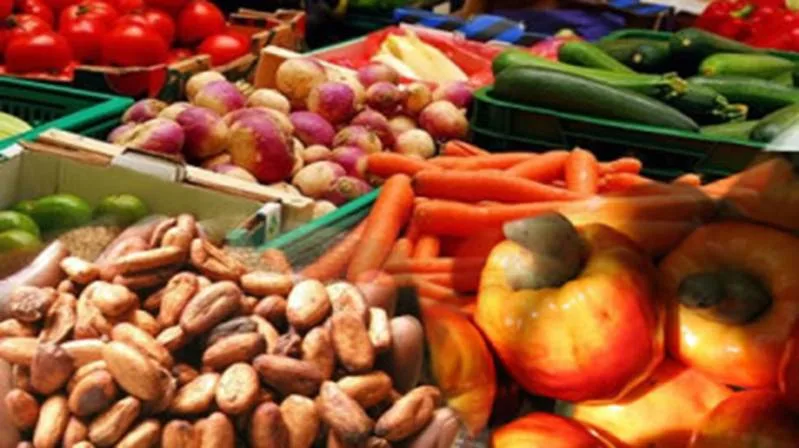
The United Nations has raised concern over the rising levels of hunger in Nigeria, warning that millions of people in the country are at risk of severe food insecurity.
In a joint report released on Wednesday by two UN food agencies — the Food and Agriculture Organisation (FAO) and the World Food Programme (WFP) — the organisations warned that millions more people around the world could face famine as funding shortfalls worsen already dire conditions.
According to the Rome-based agencies, conflict and violence are driving acute food insecurity in most of the countries identified as being at risk.
The report listed Haiti, Mali, Palestine, South Sudan, Sudan, and Yemen as the worst affected, “where populations face an imminent risk of catastrophic hunger.”
Nigeria was also among countries classified as a “very high concern,” alongside Afghanistan, the Democratic Republic of the Congo, Myanmar, Somalia, and Syria. Others include Burkina Faso, Chad, Kenya, and the situation of the Rohingya refugees in Bangladesh.
“We are on the brink of a completely preventable hunger catastrophe that threatens widespread starvation in multiple countries,” said WFP Executive Director Cindy McCain, warning that failure to act “will only drive further instability, migration, and conflict.”
The report noted that funding for humanitarian relief was falling “dangerously short,” stating that only $10.5 billion had been received out of the required $29 billion to assist those at risk.
WFP said that due to funding cuts, it had reduced assistance for refugees and displaced people and suspended school feeding programmes in some countries.
FAO also warned that efforts to protect agricultural livelihoods were under threat, “which are essential for stabilising food production and preventing recurring crises.”
The agency added that funding was urgently needed for seeds and livestock health services “before planting seasons begin or new shocks occur.”
Earlier, data released by the World Bank showed that over 129 million Nigerians are currently trapped in poverty.
The World Bank stated this in its newly released Nigeria Development Update report.
According to the global bank, increase in headline inflation has forced millions of Nigerians into hunger.
This development would mean that poor Nigerians jumped from 40.1 per cent in 2018 to 56 per cent in 2024.
“With growth proving too slow to outpace inflation, poverty has risen sharply. Since 2018, the share of Nigerians living below the national poverty line16 is estimated to have risen sharply from 40.1 per cent to 56.0 per cent.”
“Combined with population growth, this means that some 129 million Nigerians are living in poverty. This stark increase partly reflects Nigeria’s beleaguered growth record. Real GDP per capita has not recovered to the level it was at prior to the oil price-induced recession in 2016.”
The apex bank also noted that being employed does not guarantee not being poor in the country.
“Being employed, however, is no guarantee of being able to escape poverty. Many jobs are not productive and therefore remunerative enough to afford a life beyond poverty.”
It added, “Jobs hold the key to sharing the proceeds of growth. Since Nigeria has a young and growing population, the jobs that can harness the country’s potential ‘demographic dividend’ are needed now.”
“The COVID-19 pandemic compounded this drop in economic activity. Moreover, growth is failing to outpace inflation: large increases in prices across almost all goods have diminished purchasing power.”
It was also stated that economic insecurity have deepened and broadened insecurity in the country.
“Multiple shocks in a context of high economic insecurity have deepened and broadened poverty, with over 115 million Nigerians estimated to have been poor in 2023. Since 2018/19, an additional nearly 35 million people have fallen into poverty, so that more than half of Nigerians (51.1 per cent of the population in 2023) are now estimated to live in poverty.”
The World Bank noted that there was an increase from 115 million in 2023 to 129 million in 2024, which means that 14 million Nigerians have become poorer this year.
Several shocks have contributed to this major increase and changing profile of the poor: the COVID-19 recession, natural disasters such as flooding, growing insecurity, the high cost of the demonetisation policy in Q1 2023, high inflation, and low economic growth.”
“Previous domestic policy missteps compounded the effects of the shocks, particularly rising inflation, eroding the purchasing power, especially of urban households, pushing many into poverty. The government is ramping up the cash transfer programs to support economically insecure households to help weather the crisis,” the report read.
It further revealed that while poverty remained a rural phenomenon, urban poverty had grown significantly,
 Premium News
Premium News